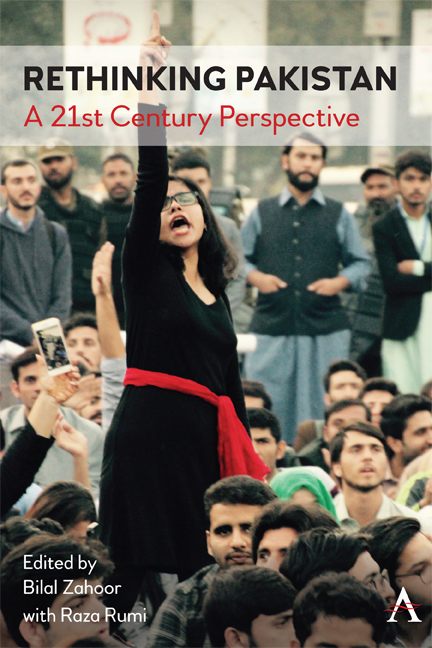Book contents
- Frontmatter
- Dedicated
- Contents
- Acknowledgements
- Introduction
- Part I Identity, Religion and Radicalisation
- Part II Development, Reform and Governance
- Part III Rights, Repression and Resistance
- Part IV Sex, Gender and Emancipation
- Part V Conflict, Diplomacy and Foreign Policy
- Contributors
- Bibliography
- Index
Chapter 17 - Future of Media Freedom
Published online by Cambridge University Press: 20 January 2022
- Frontmatter
- Dedicated
- Contents
- Acknowledgements
- Introduction
- Part I Identity, Religion and Radicalisation
- Part II Development, Reform and Governance
- Part III Rights, Repression and Resistance
- Part IV Sex, Gender and Emancipation
- Part V Conflict, Diplomacy and Foreign Policy
- Contributors
- Bibliography
- Index
Summary
In January 2017, in a secretive swoop across the country, four prominent social media activists were picked up by security agencies for being critical of state's actions and policies. While all of them were eventually released after weeks of hue and cry in the media, they came out tainted for life with the allegation of having committed blasphemy, a baseless allegation that endangered their lives and forced them to move abroad. In the months that followed, there were two more cases of a similar nature: Gul Bukhari, a columnist for The Nation and a commentator on Waqt TV, was picked up in June this year while the house of Marvi Sirmed, a columnist for Daily Times, was burgled by mysterious intruders who were only interested in taking away her laptop and passport.
In Pakistan, the known unknowns have multiple ways of silencing dissenting voices. Other than direct threats and abduction, one tactic seeks to silence defiant journalists by pressurising the top management of the media houses. In most cases the management caves in because if it dares refuse, the powers that be will shut the channel down illegally; there is no executive or judicial forum to hold the perpetrators to account. Geo TV, the biggest broadcast network of Pakistan, was put off the air in March 2018; according to Reuters, it was restored only after the management negotiated a deal with the military. Dawn newspaper was the next in the firing line: its distribution was disrupted in many areas and hawkers were allegedly forced not to carry its copies from the newspaper office. Dawn editorialised its ordeals but in vain. Several articles, published in the international press, highlighted the growing menace of censorship in Pakistan, but this also failed to alleviate the crisis.
Efforts to muzzle the media are not new. They date back to the creation of Pakistan, and the country's founder was the first target. Zamir Niazi, a late journalist, details in his book Press in Chains how an effort was made to censor a portion of Jinnah's speech in 1947: “Immediately after [the speech] was over, the principal information officer Colonel Majid Malik phoned the Dawn office and instructed that the portion relating to citizens’ right and religious beliefs should be omitted from the speech.” That the editor of Dawn refused to follow this advice is another story.
- Type
- Chapter
- Information
- Rethinking PakistanA 21st Century Perspective, pp. 177 - 182Publisher: Anthem PressPrint publication year: 2020



